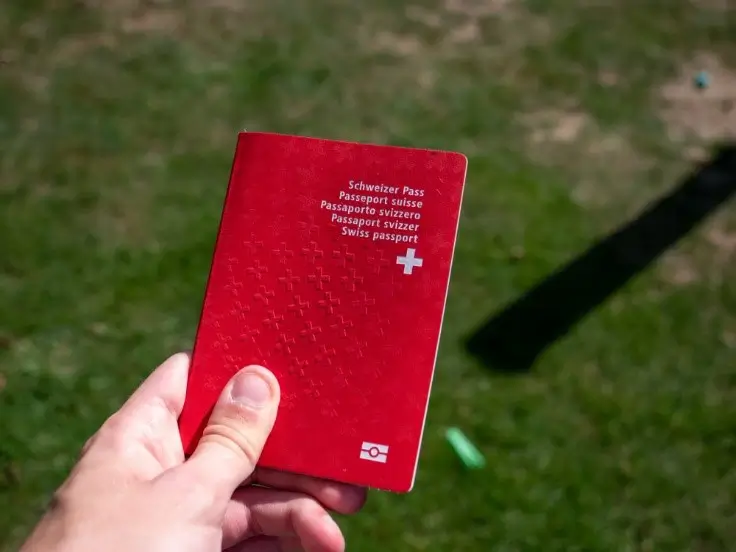Popular options for obtaining citizenship in Switzerland
Situated in the heart of Europe, Switzerland is known for its innovation, cultural diversity, commitment to neutrality and international influence in various fields. People who wish to settle in a state with natural beauty and desirable living standards choose to relocate there. Moreover, it has a stable political system, solid economic situation, and allows individuals to hold two or more passports. Acquiring citizenship in Switzerland is prestigious and appealing to countless migrants worldwide.
Swiss passport application procedures are regulated by the internal laws of this country. There are 3 main ways to gain citizenship in Switzerland:
- Birth;
- Marriage;
- Naturalization.
You can acquire a passport by birth if one of your parents is a Swiss national. This immigration program is not available in other cases and only certain people can take advantage of it. It is the least popular, according to migrant reviews.

Marriage is a popular way to gain citizenship in Switzerland. Taking into consideration the reviews, the reason for this is the speed of the immigration processes. Being legally married to Swiss citizens for a minimum of three years and residing in the country for five as well allows you to obtain a passport.
The most commonly used route to citizenship in Switzerland is naturalization. To qualify you must have lived in this state for 10 years and have permanent residence. You also have to meet these criteria:
- Live permanently in Switzerland;
- Be over 18 years of age;
- Stay in this state 36 months in the last 5 years;
- Have no convictions in crime;
- Provide proof of legal income sufficient to maintain residence in the country.
It should be emphasized that staying in Switzerland for more than 10 years will not necessarily lead to citizenship. The Migration Office examines each case individually. A candidate's case is examined and handled at three stages: federal, municipal and cantonal. It usually takes 2-3 years for the request to be approved.
Swiss nationals and applicants from EU states dominate the job market in Switzerland. It can be very difficult to find work there as other applicants are considered last. Employers are aware of the visa requirements and tend to hire highly skilled people that they cannot find locally.

Step-by-step application process
To acquire citizenship in Switzerland, an immigrant must first obtain a permanent residence permit. This requires staying in the state on the basis of a TRP. This status is gained for employment, education, family reunification, medical treatment or other purposes.
Preparing an application comes next. This involves collecting the documents needed for submission:
- Permanent residence card;
- Valid passport and copies of all its pages;
- Statement from the tax authorities that you have no debts;
- Evidence of language proficiency;
- Medical certificate confirming the absence of dangerous diseases;
- Bank statement about legal source of income;
- Certificate of no criminal record;
- Birth or marriage certificate.
The next step is to submit an application. A request should be addressed to the authorities of the canton or to the Federal Office for Migration. Which authority you should contact varies depending on the type of immigration chosen. You will have to pay the state fees and attend an interview. During this procedure, you need to prove your integration into the community to receive a Swiss passport. You will be asked questions about the country's culture, politics and history, plus your personal relationships and preferences.

After the application is approved, another requirement for receiving a Swiss passport is the oath-taking ceremony. This involves attending a municipal office on a specified date and swearing allegiance to the people and constitution of Switzerland in an official language.
Once you have successfully taken the oath, all that remains is receiving your Swiss passport. This requires providing the officials with the relevant documents (photographs, proof of payment of fees, etc.). After a few months, you will receive a passport and become a legitimate Switzerland’s national.
Issues the immigrants come across with
Immigrants face difficulties when attempting to acquire a Swiss passport due to a large number of reasons. The grounds for rejection of citizenship application should be the first thing you learn about. Here are the main ones:
- Entering into a fictitious marriage;
- Insufficient knowledge of the national languages;
- Inaccurate information or falsified documents;
- Criminal record;
- Mistakes in the application form;
- Insufficient funds in the bank account.
Issues may arise because of the chosen canton. Switzerland's territorial regions have their own constitutions and legislation. The local authorities in each of them decide separately on the granting of Swiss passports, and it is necessary to meet the requirements they impose on applicants.
It can also be difficult to collect the documents needed to obtain citizenship in Switzerland. The absence of any of the prescribed certificates, an incorrect translation into a foreign language or an inadequate notarization will always result in refusal. Some serious violations can also lead to fines or deportation.

How much does the registration process cost
Obtaining Swiss passport is expensive. There are government fees to be paid when applying, and these are divided into three categories. The amount will depend on the canton in which you live and the place where you are applying for citizenship in Switzerland. The approximate fees you must pay to receive a Swiss passport are:
- Canton: ₣2,000 (€2,140);
- Commune: ₣500 - ₣1,000 francs (€530 - €1,070);
- Confederation: ₣50 - ₣150 (€53 - €160).
To check the exact charges, it is necessary to consult the information provided by the official authorities of each canton. It is advisable to contact immigration experts to learn about the specifics and most commonly used methods of acquiring a Swiss passport.
